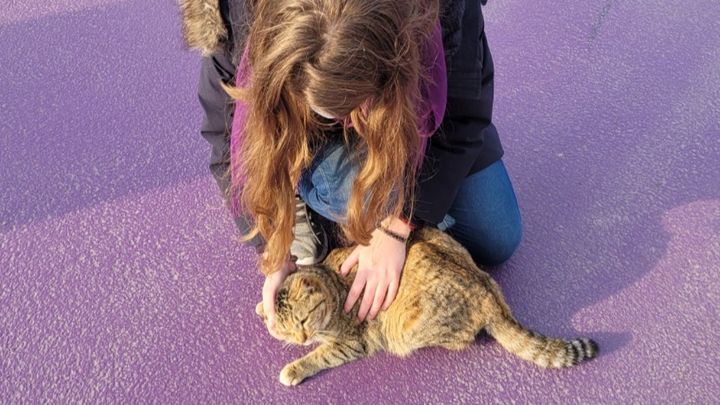
TNR (Trap-Neuter-Release) for Gwangju Street Cats
Hi! My name is Abby and I’m an American who has been living in Gwangju, South Korea for the past five and a half years.
Back in September of 2021, I found three five-day-old kittens in a bush outside my window. Two older ladies were throwing buckets of water at their mom to scare her away (and likely to kill the kittens as well). Mom never came back and I end up taking them indoors and raising them, with round-the-clock bottle feeding every two hours. Raising the three of them (plus a fourth around the same age found by an acquaintance) cost over 1000 USD (more than 1.2 million KRW before I stopped counting) and countless time and energy. While I absolutely loved it and would certainly consider fostering again, the reality is that it’s not the best use of resources to help street cats because no matter how many kittens I foster, there will always be too many kittens left.
Instead, I want to address the problem at its root through TNR (Trap-Neuter-Release). One female cat can have three litters of one to nine kittens per year for twenty years. That’s a lot of cats!
A lot of well-meaning people catch and drop off strays at their local vet or animal shelter assuming they will be taken care of. That's not true. Even though shelters try their best, they cannot possibly take care of every cat without a home. They rarely have the time, resources, or adopters to work with all of the cats they receive. In the case of young kittens (less than six weeks), they will very likely die. I was bluntly told by the animal shelter I called that I could drop off the kittens but that they wouldn’t survive the night, not even because they were going to be euthanized but because they already had 200+ cats in one room, did not have enough resources, and the staff left every night at 6 pm.
While cats do make fantastic house pets, they are fully equipped to live outdoors with just a bit of assistance to live their healthiest and happiest lives. TNR not only makes sure that they don’t have babies, but also provides numerous health benefits for the adults of a colony, from decreasing the risk of certain cancers in females and reducing territory fights between males. This is much better than catching them and bringing them to a vet or animal shelter.
To add to the urgency and make it just a little more personal, there is a stray black tabby I’ve nicknamed Banshee who LOVES to lay in the comfy pine needles two meters outside my bedroom window, stare in, and scream, and yowl at my (fixed) male cat between the hours of 11:30 pm and 6 am. The TNR will definitely be starting with him.
Neutering surgery is very expensive in Korea, and vets, shelters and government programs do not really give any financial breaks to street cats. Getting Coco, my male cat, neutered and vaccinated cost 391,000KRW (323USD) and females are much more expensive. I will be calling a few vets to inquire about discounts, but I don’t expect to be able to find a much lower price. Additionally, I will need to purchase a humane trap from around 55,000KRW (~50 USD) if I cannot find one to borrow (still looking into this) and be prepared to cover any other medical emergencies that the vets may discover. I would love to do five cats but am open to as many as I can. I will be starting with Banshee and continuing until the funds run out. Donors can follow my instagram @abbys_tabbies or my Facebook page “Abby's Tabbies” for updates (https://www.facebook.com/TNR-for-Gwangju-Street-Cats-100243012583484). Since GoFundMe does charge a normal card processing fee, I also want to give other donation options for people who want 100% of their money to go toward the TNR:
PayPal:
Bank Transfer (in Korea): Gwangju Bank 190121114053 (Milone Abigail Corinne)
If you love cats, donate to improve the lives of street cats in Korea. If you hate cats, donate so there are fewer cats. With TNR, everybody wins
UPDATE: These days, I am frequently able to get financial support for TNR from the Gwangju city government through their neutering program. That means that the majority of funds raised are being used for kitten foster care, with some being used for TNR and medical procedures on street cats, as determined by the need at that time. My donations and expenses spreadsheet is available upon request for anyone who would like to know exactly how the money is being used. With your help, I have been able to care for 28 kittens, TNR 10 adult cats, help several other street cats with other medical issues, and help find homes for other cats and kittens in need. I never set out to do this and I never expected it to grow this much, but thank you to each and every person who has contributed in some way.



Organizer
Abigail Milone
Organizer
Rome, NY